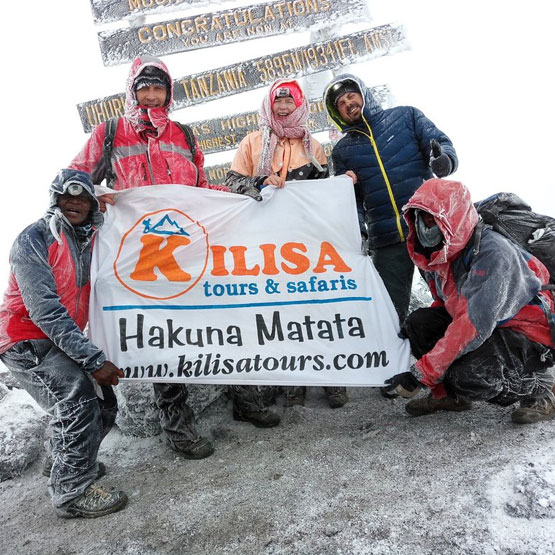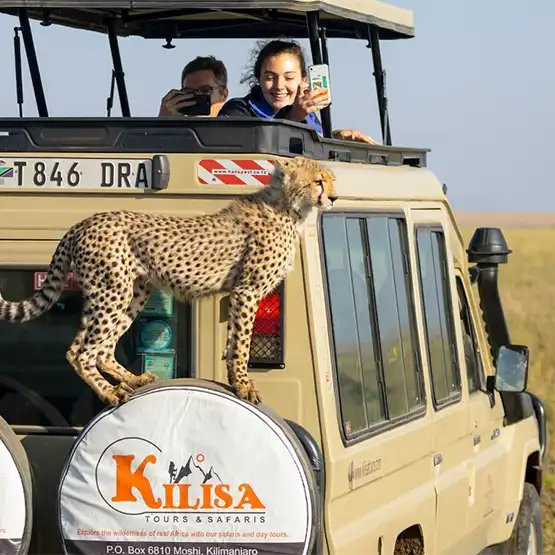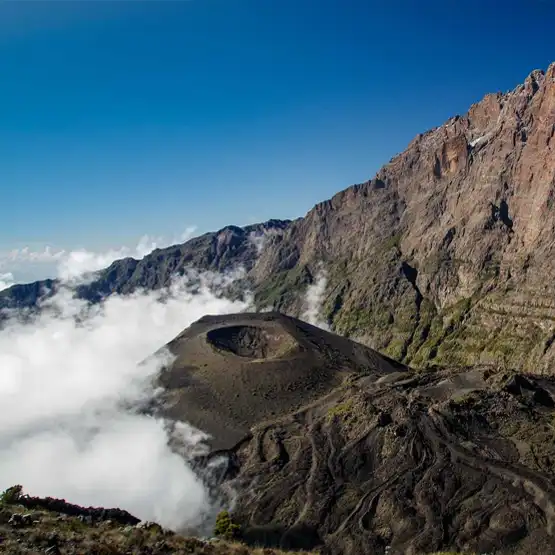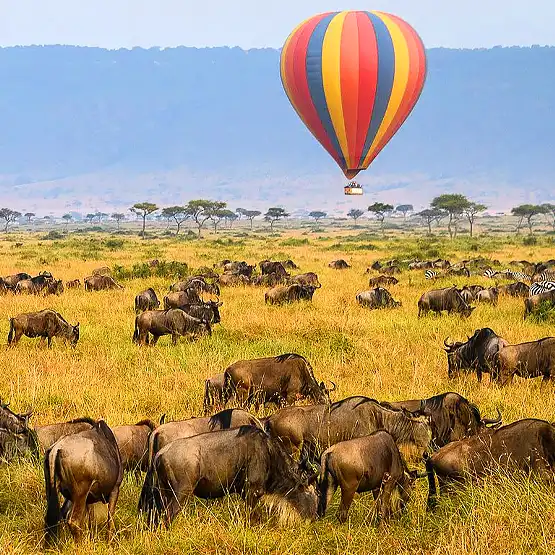Scaling Mount Kilimanjaro is a bucket-list adventure for many, but picking the right tour operator can make or break the experience. With over 300 licensed tour operators to choose from, how do you find the one that stands out? It’s not just about the cost; safety, success rate, and porter treatment are crucial factors to consider.
Look into the operator’s track record and certifications. Companies with a long history of successful treks and good client feedback usually have a solid reputation. Surprisingly, only 65% of climbers reach the summit—so selecting an operator with a high success rate can significantly increase your odds.
- Research operators’ reputations and read reviews from past clients.
- Verify licenses and accreditations to ensure they meet industry standards.
- Assess the quality of guides, including their experience and certifications.
- Understand the operator’s safety and emergency protocols in case of issues during the trek.
- Consider sustainability practices and staff welfare commitments for a responsible choice.

How to Choose a Good Kilimanjaro Tour Operator
Choosing a good Kilimanjaro tour operator is essential for a successful climb. Researching operators’ reputations and reviews is the first step. Look for feedback from past clients on various review platforms. Positive reviews regarding safety, service, and successful climbs are indicators of a reliable operator. It’s also beneficial to seek recommendations from friends or professional trekking communities.
Next, verify that the operator has the proper licenses and accreditations. Licensed operators follow specific guidelines, ensuring a level of safety and professionalism. Check if they are accredited by reputable organizations. These organizations usually uphold stringent standards in the travel industry. Without proper licensing, the risk of subpar service or unsafe practices increases.
It’s crucial to assess the quality of guides provided by the tour operator. Qualified guides with proper training and certifications can make a big difference. Experienced guides can handle emergencies and offer valuable insights about the climb. According to the article here, having well-trained guides significantly boosts your chances of a successful summit. Inexperienced guides could jeopardize the trek, making this factor crucial.
Additionally, make sure the operator prioritizes safety and has well-defined emergency protocols. They should provide comprehensive details about their safety measures. It’s also essential to consider how they treat their porters and staff. Ethical treatment of staff reflects the operator’s overall commitment to fair practices. For more insight into scheduling your climb, read this post about the best times to trek.
Step 1: Research Operators’ Reputation and Reviews
The first step in choosing a Kilimanjaro tour operator is researching their reputation. You can find reviews on various travel forums and websites. Reviews from past clients offer valuable insights into what you can expect. Some operators have testimonials on their official websites, but it’s wise to check independent sources too. This ensures a well-rounded view of their services.
Make a list of potential operators to compare their reviews. Look at both positive and negative feedback. Patterns in the reviews can indicate common strengths or weaknesses. If several reviews mention poor safety standards or unreliable guides, consider it a red flag. Conversely, consistent praise for knowledgeable guides and excellent services is a good sign.
Joining social media groups related to Kilimanjaro climbing can also help. These communities often have members who have already completed their treks. They can offer firsthand recommendations and advice. Conversations with them can provide you with information not always available online. This personal touch helps make an informed decision.
Using review sites like TripAdvisor or Trustpilot can be beneficial. These platforms aggregate user ratings, giving you an overall score for each operator. Detailed reviews often highlight specific aspects of the tour experience. This can include the quality of food, equipment, and the professionalism of the staff. Consider all these factors when making your choice.
Step 2: Verify Licenses and Accreditation
Once you’ve shortlisted a few operators, it’s essential to verify their licenses and accreditations. Licensed operators are more likely to follow safety and ethical guidelines. This ensures that you’re in good hands throughout your trek. Check for certification from reputable bodies like the Tanzania Tourist Board. These credentials are a strong indicator of the operator’s reliability.
Many reputable tour operators proudly display their accreditations on their websites. It’s also wise to cross-check these claims through the accrediting bodies’ official sites. Genuine accreditation often comes with a logo or certificate number you can verify. This step eliminates any doubts about the operator’s legitimacy. Be cautious of companies that cannot provide proof of their credentials.
Accreditations from organizations such as Kilimanjaro Porters Assistance Project (KPAP) are valuable. KPAP focuses on the welfare of porters, ensuring they receive fair treatment. An operator affiliated with KPAP is likely to uphold ethical standards. This not only guarantees a better experience for you but also ensures fair labor practices. It’s a win-win for everyone involved.
You should also look into the company’s history and experience. Longevity in the business often correlates with reliability and expertise. Established operators are more likely to have robust safety procedures. They are also better equipped to handle any emergencies that may arise. Last but not least, always ask for copies of their licenses if they aren’t readily available online.
Step 3: Assess the Quality of Guides
Evaluating the quality of guides is a vital step in choosing a Kilimanjaro tour operator. Experienced guides can make your trek more enjoyable and safe. They should have ample trekking experience and thorough knowledge of the mountain. Ask about the guides’ certifications and training. It’s important they are trained in first aid and emergency response.
Good guides offer more than just direction; they provide valuable information about the environment. This includes insights into Kilimanjaro’s unique wildlife and plants. They can make your trek educational as well as exhilarating. Skilled guides can adapt to unexpected situations and weather changes. This level of professionalism is crucial for a successful climb.
A reliable indicator of guide quality is feedback from previous trekkers. Many reviews specifically mention the competence and attitude of guides. Look for comments about their professionalism, helpfulness, and knowledge. Positive reviews about guides often correlate with higher overall satisfaction. Personal recommendations can also be highly valuable.
You can also directly ask operators about their guides’ experience and training. Some operators provide detailed profiles of their guides. This transparency is usually a positive sign. Knowing your guides’ background helps you feel more comfortable on the trek. It assures you that you’re in capable hands.
Finally, consider the guide-to-client ratio. Smaller groups often receive more attentive service. A lower ratio means you get more personalized support during your climb. Larger groups might mean less individual attention, which can impact your experience. Ensure you are comfortable with the ratio before making a decision.
Step 4: Understand Safety and Emergency Protocols
Comprehending the safety and emergency protocols of your Kilimanjaro tour operator is crucial. Ensuring they have well-defined measures can save lives. First, inquire about their altitude sickness management. Experienced operators will have contingency plans for dealing with altitude sickness symptoms. They should also conduct regular health checks during the climb.
Emergency communication tools are another vital aspect. Reliable operators equip their guides with satellite phones or radios. These devices are essential for staying connected with the base camp. They allow for quick communication during emergencies. Knowing that your guide has direct communication can provide peace of mind.
Evaluate the availability of first aid kits and medical supplies. Well-prepared guides should carry comprehensive first aid kits. This should include items to treat common trekking injuries. Ask about the type of medical training the guides have received. Trained guides can handle basic medical emergencies until professional help arrives.
Reputable operators will also provide evacuation plans. They should detail how they will handle severe cases requiring immediate descent. Having a clear evacuation plan is a must. Some operators even collaborate with helicopter rescue services. This ensures a rapid response if the situation worsens.
Don’t forget to check their insurance coverage. Make sure it includes emergency evacuation and medical treatment. It’s essential for operators to have proper insurance plans. Additionally, verify if you need to purchase specific travel insurance. This extra step ensures you are fully protected.
Step 5: Consider Sustainability and Responsible Tourism Practices
Considering sustainability and responsible tourism practices is increasingly important. A good tour operator should be committed to minimizing their environmental impact. Ask about their waste management policies. Responsible operators ensure that all waste is properly disposed of. They also encourage trekkers to follow “leave-no-trace” principles.
Responsible tourism also includes supporting local communities. Operators that hire local guides and porters contribute to the local economy. Fair wages and proper working conditions are signs of ethical practices. Look for operators who are part of initiatives like the Kilimanjaro Porters Assistance Project (KPAP). KPAP accreditation ensures fair treatment and respect for porters.
Sustainable operators often invest in conservation projects. They might contribute to reforestation or wildlife protection programs. Ask how your tour fees are allocated in terms of environmental conservation. Knowing that your trek supports these efforts adds value to your journey. It also promotes a more ethical travel experience.
Many operators now offer eco-friendly trekking options. These include using solar-powered equipment and biodegradable products. Choosing such an operator means reducing your carbon footprint. It also sets a positive example for other travelers. Ask about their eco-friendly practices before making a decision.
Make sure to read reviews regarding their sustainability efforts. Previous clients often share how well an operator adheres to responsible practices. Positive feedback in this area is encouraging. According to recent posts, this aspect is becoming a top priority for many travelers. Understanding their commitment helps ensure a responsible and enjoyable trek.
Key Considerations in Selecting a Kilimanjaro Tour Operator
Selecting the right Kilimanjaro tour operator involves several key considerations. Start by looking into their experience and history of successful climbs. An operator with a long track record is usually more reliable. They are likely to have well-developed processes in place. Previous client testimonials can offer insights into their capabilities.
Cost is another major factor, but it shouldn’t be the only one. Cheap operators might cut corners on safety or staffing quality. Compare what’s included in the cost among different operators. Services like meals, accommodations, and entry fees should be accounted for. A higher price sometimes means better services and peace of mind.
Check if the tour operator has comprehensive emergency protocols. Ask specific questions about how they handle altitude sickness and other emergencies. Knowing these details upfront can alleviate stress during the trek. Quality operators will be transparent about their safety measures. They should also have qualified guides trained in first aid.
Sustainability practices should also weigh into your decision-making process. An operator committed to eco-friendly trekking minimizes environmental impact. Look for certifications from environmental organizations or local community support initiatives. Their dedication to sustainable tourism reflects on their overall ethical practices. This ensures you have a positive impact while fulfilling your adventure dreams.
Another crucial aspect is the treatment of porters and staff welfare. Ethical treatment aligns with fair wages and good working conditions for all employees involved in your trek experience.
Operators affiliated with KPAP (Kilimanjaro Porters Assistance Project) show this commitment.
- Fair wages
- Good working conditions
- Supportive team environment
. This guarantees that everyone contributes positively, making your expedition even more rewarding.
Evaluating Cost Vs. Value for Kilimanjaro Tours
When choosing a Kilimanjaro tour operator, evaluating cost versus value is essential. A lower price might seem attractive at first. However, it’s important to understand what that price includes. Some cheaper options might exclude important services. This can lead to unexpected expenses on the trek.
Consider what is included in the tour package. Check if the cost covers meals, permits, and accommodation. Some operators provide extra services, like airport transfers or gear rental. These add value to the package. It’s often worth paying a bit more for a comprehensive package.
Look at the quality of services provided. Higher prices often reflect better quality. For example, experienced guides and quality equipment come at a cost. It can make your experience safer and more enjoyable. Weigh these aspects carefully when comparing packages.
Think about the size of the group. Smaller groups usually mean higher prices but more personalized attention. This can enhance your overall experience. Larger groups might be cheaper but could feel less intimate. Choose what aligns with your expectations and trekking style.
Evaluate the ethical practices of the operator as part of the value. Operators who treat their staff well might charge a bit more. This reflects their commitment to fair practices and quality service. Supporting such companies adds value beyond the trek. It ensures a positive impact on the community as well.
The Role of Porters and Staff Welfare in Your Choice
The role of porters and staff welfare should heavily influence your choice of Kilimanjaro tour operator. Porters carry heavy loads, set up camps, and ensure trekkers have what they need. Their work is essential for a successful climb. Therefore, choosing an operator who treats their porters well is crucial. It shows the operator’s commitment to ethical practices.
Look for operators affiliated with the Kilimanjaro Porters Assistance Project (KPAP). KPAP ensures that porters receive fair wages and proper equipment. It also promotes good working conditions. An operator involved with KPAP is more likely to treat their staff with respect. This affiliation is a positive indicator.
Consider the welfare programs operators have in place. These can include training sessions, health care, and proper gear provisions. Porters should have suitable clothing and boots to handle the mountain conditions. Operators who invest in their staff’s well-being are often more reliable. They understand that a happy team makes for a better trekking experience.
Check the operator’s policy on tipping as well. Adequate tipping practices are essential for porters’ income. An operator who has transparent tipping guidelines is likely to be fair. This helps ensure that the porters are adequately compensated for their hard work. Clear guidelines also make it easier for you to budget your trek.
You can also review feedback from past clients regarding staff treatment. Many trekkers leave comments on how porters and guides were treated. Consistent positive feedback in this area is a great sign. It indicates that the operator values their team’s welfare. Happy staff are likely to provide better service, enhancing your trek experience.
Why Choosing Kilisa Tours Could be Your Best Decision
Choosing Kilisa Tours could be one of the best decisions for your Kilimanjaro trek. They have a proven track record of successful climbs. Their guides are experienced and well-trained, ensuring a safe journey. Kilisa Tours is known for their excellent customer service. Past trekkers often praise their friendliness and professionalism.
Kilisa Tours places a high emphasis on porter welfare. They are affiliated with the Kilimanjaro Porters Assistance Project (KPAP). This means they maintain fair working conditions for their staff. Porters receive proper gear and fair wages. Supporting an operator that cares for its staff adds value to your trek.
Safety is a top priority at Kilisa Tours. They have rigorous safety protocols, including regular health checks. Guides are equipped with first aid kits and emergency communication devices. Clients can trek with confidence, knowing their well-being is a priority. This is crucial for a successful climb on a challenging mountain.
Kilisa Tours also offers comprehensive tour packages. Their services include meals, accommodations, and permits. They take care of all logistics, allowing you to focus on the climb. Trekkers can enjoy a hassle-free experience with everything organized for them. This convenience is worth the investment.
The company is dedicated to sustainable and responsible tourism. They implement eco-friendly practices and support local communities. Choosing Kilisa Tours means minimizing your environmental impact. Their commitment to sustainability enhances the overall trekking experience. Your adventure can contribute positively to the region.





